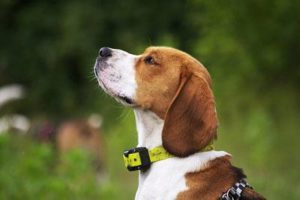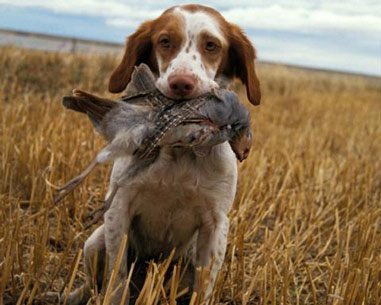 Crate training Beagle dogs is a basic habit that will serve you very well while you are not home or require your hunting dog to be locked up before, during or after a hunt. It reduces anxiety, destructive behaviour and barking, and ensures the safety of a dog. Beagle dogs that are crate trained are easier to house break, and easier to keep out of places such as your garden beds, or off places such as your couch.
Crate training Beagle dogs is a basic habit that will serve you very well while you are not home or require your hunting dog to be locked up before, during or after a hunt. It reduces anxiety, destructive behaviour and barking, and ensures the safety of a dog. Beagle dogs that are crate trained are easier to house break, and easier to keep out of places such as your garden beds, or off places such as your couch.
Contents
Beagle Dogs Value Their Crates Too
Crates are the perfect environment for Beagle dogs to spend their time when unsupervised, or during breaks in a hunt. With crate training they will learn to love their crate because, like their wild counterparts, hunting dogs require a small, safe place to call their own. Dogs that have wide open spaces to roam usually have difficulty adjusting to the space. They cannot define their ‘home’ within a large, open space, and it can cause behavioural problems as the dog tries to protect, control, and patrol the entire space. It also causes problems for you as the hunting dog’s owner. A dog with a large area to roam is more likely to find itself in trouble than a dog that has a definite spot to call home.
How to Implement Crate Training for Beagle Dogs
Crate training ideally starts when Beagle Dogs are puppies. You can train a fully grown Beagle but the dog may experience more prolonged periods of unsettledness than a puppy. An older dog usually requires more time and persistence on your part, but they will respond to crate training if you are willing to commit. A puppy usually adapts better because they have a lessened awareness of alternatives, and have few developed habits that will interfere with their training.
Beagle dogs should be given crates that are not too big for them. If your hunting dog can turn around in their space then the crate is plenty big enough. A crate too big is a like the ‘home’ space referred to earlier being too big. It gives the dog room to mess, and wreak havoc. Give Beagle dogs a clean, and comfortable bed, a source of fresh water, and a toy or a piece of game, animal hide to play with.
Initially place Beagle dogs, in their crate, somewhere that receives heavy traffic. Teach people in your household that if they walk past the puppy or dog to ignore it if it is whinging or praise it if it is being quiet, and showing no stress. Having people walk past the dog in the beginning of crate training asserts to the dog it is not alone, and only receives attention when it is good. Remember, if you make a fuss and take the hunting dog out of its crate or give it attention when it is upset, you are rewarding the dog for its bad behaviour. Only reward the dog for good behaviour. In crate training start by leaving Beagle dogs in their crate until they have been quiet for 5minutes. The next time stretch it out to 10minutes, then stretch it out to 20minutes etc. Eventually, you will be able to leave your hunting dog in its crate all day, if that is how long you will be away for.
Crate training Beagle dogs is important for their good behaviour at home and on a hunt. It makes your life easier knowing you can leave your dog alone where it is safe, and comfortable. Hunting dogs are transported all over the place, so familiarising Beagle dogs with a crate at home helps enormously when you need to place them in a crate to take them hunting.
Did you know that there is only one breed of dog, the Basenji that does not bark at all? For other hunting breeds, like Beagle dogs, barking is a behaviour that you know you cannot eliminate altogether. However, it is possible to eliminate nuisance barking in hunting dogs. It is just a matter of training Beagle dogs when it is ok to bark and when it is not ok to bark while at home and when hunting.
Before you can stop Beagle dogs from barking unnecessarily, you need to understand why they bark and what forms of barking you can control.
Why Beagle Dogs Will Bark
There are a number of reasons why Beagle dogs will bark. They bark when they are angry, happy, excited, in pursuit of game and even when they are unhappy.
Here is a rundown of when you might expect your dog to start barking:
– Territorial Barking
– Frustration Barking
– Alarm Barking
– Chasing Game
– At Other Dogs
– Attention Seeking Barking
– Greeting Barking
– Anxiety Barking
– Compulsive Barking
– Injury or Illness Related Barking
You may have noticed that some of these instances are when you would want Beagle dogs to bark, and other instances when you would prefer them not to bark.
How to Stop Beagle Dogs from Barking Needlessly
You first have to determine what you consider nuisance barking from Beagle dogs. Many times a hunter will identify most barking by a dog as excessive, especially since the Beagle is a breed known for excessive barking. Ask yourself the following three questions when observing your hunting dog’s barking habits.
Do your Beagle dogs have specific triggers that initiate barking?
 Territorial barking is a common situation where Beagle dogs bark unnecessarily. The trick with territorial barking is to refine it so that it is useful in alerting you that there is a potential threat. Do not reprimand your hunting dog by yelling at it. This is negative reinforcement, and the dog doesn’t grasp that you are yelling at them for their barking. Remember Beagle dogs, without guidance, will make their own decisions on what a threat is, and they will not understand why you are scolding them. They believe they are doing the right thing. Beagle dogs need to be taught that it is not always permissible to be defensive at threats to what it perceives its territory. You need to educate hunting dogs on what is their territory and what is not their territory. Such as outside the fence is not their territory and neither is the back of your truck, but inside the fence is their territory. Territorial issues on the back of a truck can also lead to aggression issues, so this lesson in territory addresses other behavioural problems too.
Territorial barking is a common situation where Beagle dogs bark unnecessarily. The trick with territorial barking is to refine it so that it is useful in alerting you that there is a potential threat. Do not reprimand your hunting dog by yelling at it. This is negative reinforcement, and the dog doesn’t grasp that you are yelling at them for their barking. Remember Beagle dogs, without guidance, will make their own decisions on what a threat is, and they will not understand why you are scolding them. They believe they are doing the right thing. Beagle dogs need to be taught that it is not always permissible to be defensive at threats to what it perceives its territory. You need to educate hunting dogs on what is their territory and what is not their territory. Such as outside the fence is not their territory and neither is the back of your truck, but inside the fence is their territory. Territorial issues on the back of a truck can also lead to aggression issues, so this lesson in territory addresses other behavioural problems too.
Ultimately you are the protector of the territory, and therefore you must assert yourself as the leader of Beagle dogs. You are able to train your hunting dog that threats inside the fence are permissible to bark at BUT only until you, as the alpha dog, determine it to be a threat or not. If the threat is not a threat at all then you, again as the alpha dog, will be able to ask Beagle dogs to quit barking. And they will obey. Another tactic that can be used to eliminate territorial barking is to physically reduce the ability for your hunting dog to see outside of its territory. Draw blinds if they spend time inside, or erect a fence that has no gaps where the dog can see through. This again teaches them that inside the fence or inside the house is the only territory that needs to be protected.
Anxiety and Barking Beagle Dogs
Beagle dogs can be prone to anxiety. Barking, among other undesirable behaviours, is a common side effect for a hunting dog that has anxiety issues when you are not in its presence. The dog wants to reach you and will continuously bark until you return. Often this behaviour continues because you have rewarded your hunting dog. Do you say goodbye or greet Beagle dogs with excitement, pats etc immediately before or after you leave? You making a big deal, about your leaving or returning, encourages anxiety, and barking in your hunting dog. Alpha dogs do not consider the reactions of their pack when they leave or arrive. They just leave or arrive.
The solution here is to gain your position as the alpha dog. Then act like an alpha dog acts. Ignore Beagle dogs completely on your arrival home. Allow 10-15 minutes to pass before you acknowledge the dog. Don’t say goodbye to your dog at all before leaving. These behaviours from you reduce the importance of you leaving or arriving home to your hunting dog. They are a pack animal and respond well to a strong alpha leader.
Barking Commands for Beagle Dogs
Finally, in the training of Beagle dogs to not bark unnecessarily is to establish consistent commands that tell a dog to speak and be quiet. When you have taught your hunting dog to speak, and be quiet, train them to speak when someone walks in the front gate that they don’t recognise, and then ask them to stop barking. Reward them with pats or a treat when they bark and then when they stop. They will eventually start recognising appropriate threats themselves and bark automatically, but stop when you ask.
Barking Beagle dogs do not have to be the bane of your neighborhood, household or hunt. Train your dog in these barking basics, and you will have the ideal student for when barking skills need to be taught when your dog is hunting. Much of a hunting dog’s training is the basics. Teach these correctly, and you will have a great dog around the home and an impressive dog on the hunt.


Reply